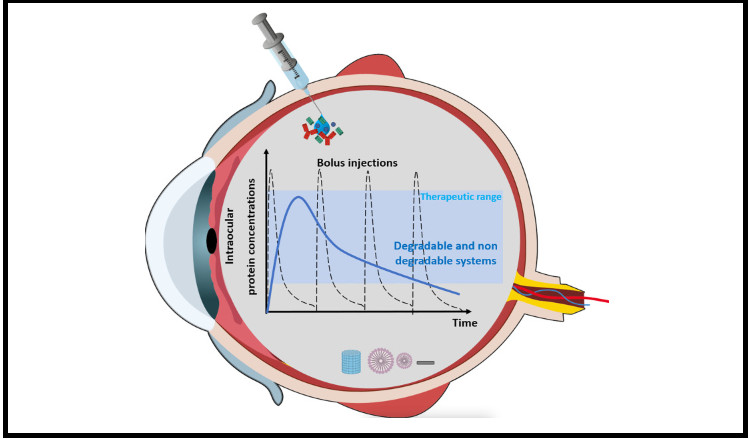
Recent research conducted by a collaborative team including Professor Hyung Joon Cha from the Department of Chemical Engineering and the School of Convergence Science and Technology, Dr. Geunho Choi from the Department of Chemical Engineering at Pohang University of Science and Technology (POSTECH), and Professors Woo Jin Jeong, Woo Chan Park, and Seoung Hyun An from the Dong-A University Hospital's Department of Ophthalmology, has resulted in the development of an artificial vitreous body for treating retinal detachment. This innovative solution, published in the Biomaterials journal by Elsevier, utilizes a natural carbohydrate derived from algae, specifically a modified form of alginate. Retinal detachment, a condition where the retina separates from the inner wall of the eye and moves into the vitreous cavity, potentially leading to blindness, can be addressed with this approach. Unlike traditional methods involving medical intraocular fillers like expandable gas or silicone oil, which may cause side effects, this alginate-based hydrogel offers high biocompatibility and optical properties similar to the authentic vitreous body. It effectively regulates fluid dynamics within the eye, stabilizing the retina and eliminating air bubbles, thereby preserving vision post-surgery. To assess the stability and efficacy of the hydrogel, the team conducted experiments using rabbit eyes, chosen for their similarity to human eyes in structure, size, and physiological response. Implanting the hydrogel into these eyes demonstrated its ability to prevent retinal detachment recurrence, maintain stability, and function effectively over an extended period with no adverse effects. Professor Hyung Joon Cha of POSTECH, who spearheaded the study, highlighted the increasing prevalence of retinal detachment, particularly among young individuals and those with severe myopia. He emphasized the team's dedication to advancing the technology for practical use in eye care through ongoing research efforts. Funding for the research was provided by the Korea Medical Device Development Fund and the Mid-Career Research Program of the National Research Foundation of Korea.

This Sunday (7th April), marks World Health Day – the 76th anniversary of the Constitution of the World Health Organization (WHO) coming into force.
This year’s theme for World Health Day is 'My health, my right’, reaffirming what WHO has affirmed since its birth on the 7th of April, 1948: that health is a right for all people, not a luxury.
Cities globally attract young individuals for work, education, and social opportunities, and a recent study outlines characteristics crucial for bolstering their mental health.
26Weeks26Quizzes26th year of EMCON
(Quiz available ONLY in official watsapp channel of EMCON24 - join now)
New Delhi: In the realm of India's educational landscape, few obstacles rival the National Eligibility and Entrance Test (NEET). This rigorous examination serves as a formidable barrier, permitting only a select few to overcome its challenges.
Dr Jamal
Aster hospital, Ibri, oman.
We have various options to advertise with us including Events, Advertorials, Banners, Mailers, etc.